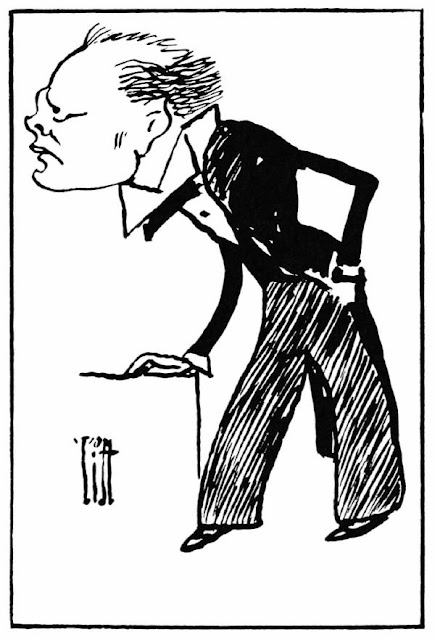I have quite a few books in my library related to Winston S. Churchill: biographies, collections of photographs, and books by himself. I acquired this one from the gift shop of the
National Churchill Museum at
Westminster College in Fulton, Missouri. From the chapter on "Government and Economies":
Many forms of government have been tried and will be tried in this world of sin and woe. No one pretends that Democracy is perfect or all-wise. Indeed, it has been said that Democracy is the worst form of government, except all those other forms that have been tried from time to time. - House of Commons
And again:
The best argument against Democracy is a five-minute conversation with the average voter. No one pretends that Democracy is perfect or all-wise. Indeed it has been said that Democracy is the worst form of government, except all those other forms that have been tried from time to time"
I had thought this next was contributed by Orson Welles to the script of
The Third Man (1949). I didn't realize Welles had borrowed it from Churchill.
Look at the Swiss! They have enjoyed peace for centuries. And what have they produced? The cuckoo clock! - 1938
More:
Some people's idea of free speech is that they are free to say what they like but if anyone says anything back, that is an outrage."
I have always felt that a politician is to be judged by the animosities he excites among his opponents.
Expenditure always is popular; the only unpopular part about it is the raising of the money to pay the expenditure. - House of Commons, 1901
The electors, based on universal suffrage, may do what they like, and afterwards they have to like what they do. - Blackpool, 1946
















